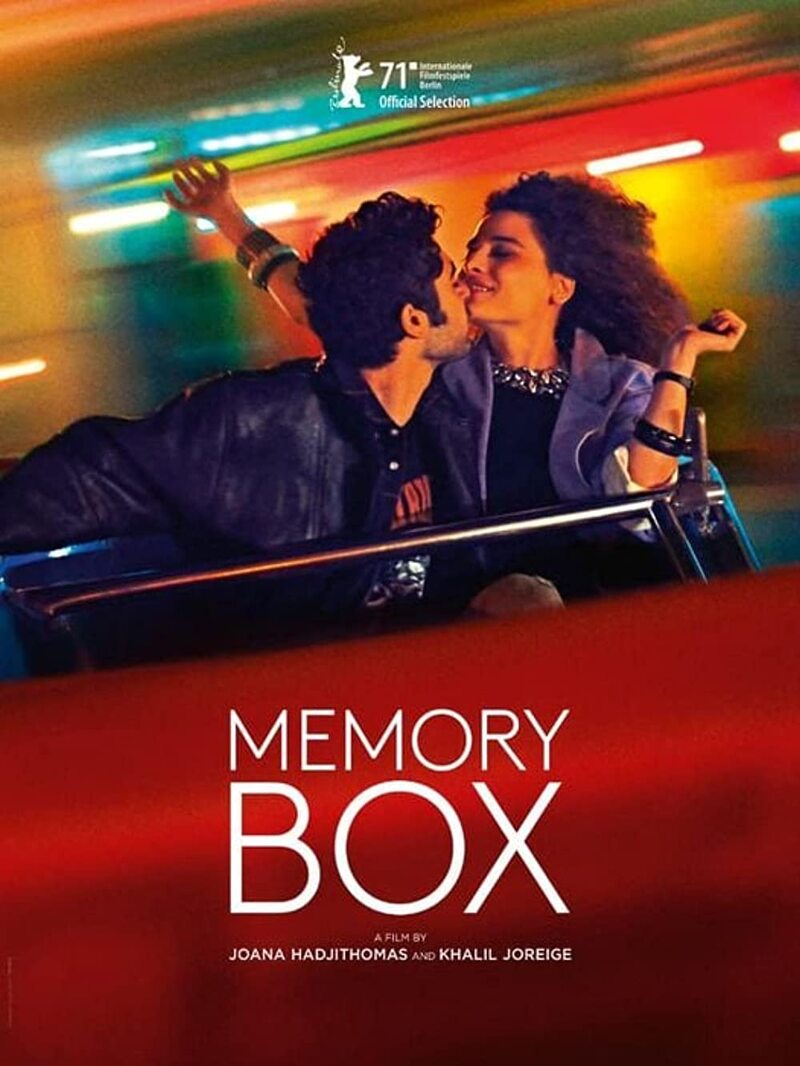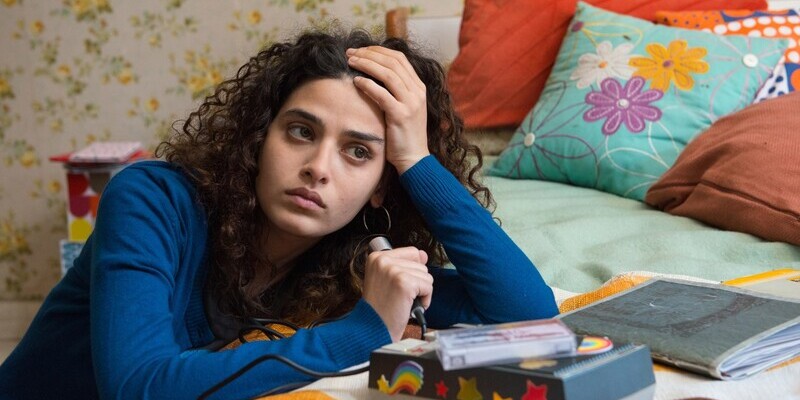
Review by
Benjamin Poole
Directed by: Joana Hadjithomas, Khalil Joreige
Starring: Rim Turki, Manal Issa, Paloma Vauthier, Michelle
Bado, Rita Bado, Rabih Mroué

Here’s one for you: how many photos have you taken today? Even over the
last few hours, what absurd amounts of images have you amassed on your
phone; the selfies, the pictures of cats, that amusingly contorted cloud
shape you spotted on the way to work (which didn’t quite look as funny
when you re-opened the picture to show nonplussed colleagues later)?
Loads, I bet. Hundreds, even. What happens to them? If they’re not subject
to the dubious posterity of social media, and if you’re anything like me,
then tomorrow and the day after those images will be overlaid by even
newer pics, before eventually being shunted off to an abstract digital
cloud...maybe never to be revisited again. Perhaps though, along with the
ease with which we can take them now, the reasons we take photographs and
make videos, has also changed: to perpetuate an endless now, to engage in
the present with others - instead of preserving the moment, we attempt to
prolong it. A momentary craving executed by its own fleeting intensity.
There is a reason why Snapchat built automatic disposability into their
yute orientated image hosting, after all.

These were the thoughts that flicked through my mind while watching
Joana Hadjithomas and Khalil Joreige’s (with script support
from Gaëlle Macé) evocative Memory Box. In this time spanning drama, the titular receptacle contains notebooks,
photographs and audiotapes which were created in 1980s Beirut by the then
teenage Maia (Manal Issa), and now sent on to her contemporary
adult counterpart (Rim Turki), who has a teenage daughter of her
own, Alex (Paloma Vauthier). Along with its ardent sense of place
and detailed characters, the credibility of Memory Box’s premise is further emboldened by its real life inspiration: an
intertitle informs us that the story and mise-en-scene is "freely adapted"
from co-director Hadjithomas’ teenage letters and diaries 1982-1988.

Like most of us, I couldn’t imagine a Proustian rush of teenage me, so
fair play to Hadjithomas in revisiting her story for
Memory Box. Her central character isn’t quite as courageous, however, as Maia
prefers to leave the box and all its remnants of the past alone; the
artefacts are reminders of who Maia was, but also delimitations of the
person she has become. And so, it falls to Alex to secretly plunder the
container... As she accesses the materials within, the film shifts to the
time and places that they refer to. And in its return to Maia’s youth
Hadjithomas and Joreige’s cinema emotively maximises; in stark contrast to
the neutral representation of Maia and Alex’s life in modern Montreal, the
depicted memories are intensely colourful and alive with teenage
excitement. Pulsing needle drops soundtrack sequences of electrifying
movement, involving dancing, speeding home with a boy on a motorbike, and
(amazingly) sneaking out at night to watch
Phantom of the Paradise.
And there is also violence: our first reminder of the precarious social
contexts of Alex’s youth is when we see a teenage couple ‘parking’ (a
fascinating concomitant of Memory Box is how influenced by
American culture the 1980s Lebanese youth seemingly were), and the lad
gets out an AK-47 assault rifle and starts showing it off in the same
everyday way as you or I might flaunt a new phone app to our friends. Of
course, the siege will come to define young Maia’s life, but Hadjithomas
and Joreige do not centralise the war, and instead give an ensuing
impression of how it impacted on Beirut’s citizens, emphasising the
freedoms which were compromised. Focussing on a cast of female characters,
with men suddenly conscripted or otherwise devastated, the narrative
explicates the people who held a remaining society and culture together.

As 21st century Alex reads letters, listens to C-90s, and, in one
delightful touch, even scratches n’ sniffs a sticker her mother placed
years ago, we are given a personal, subjective experience of an
established conflict via items which have endured and survived in the same
way as their author. And perhaps there is something more suggestive about
a physical object, its very tangibility giving it a sense of urgency.
Memory Box expounds the sacred nature of collected media;
the value of pen committed to paper, the choices made with a limited roll
of camera film, the all-important curation of a mixtape. Artefacts that a
person commits to, and which persevere to tell their story across
generations.

Memory Box is in UK cinemas from
January 21st.

